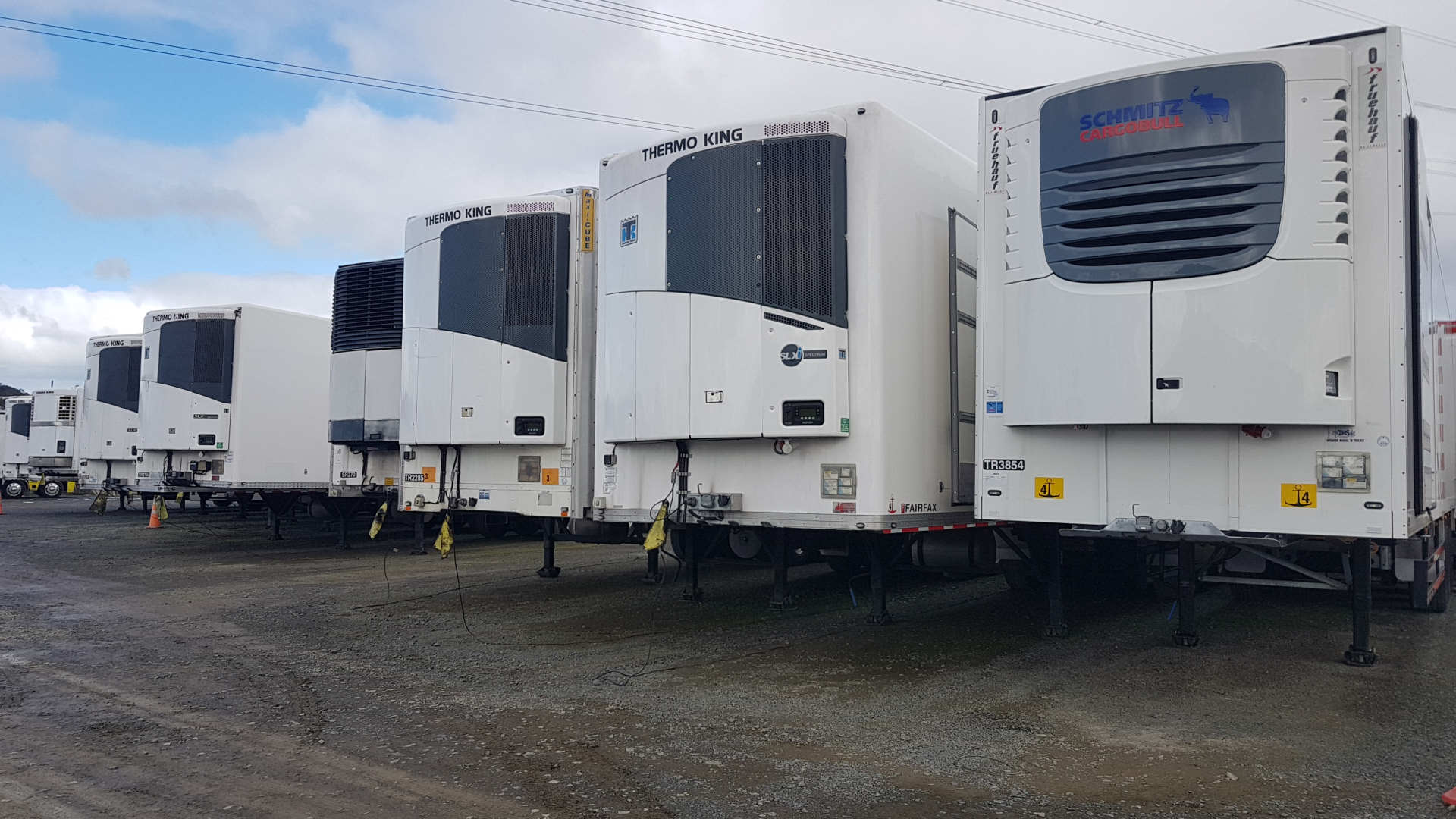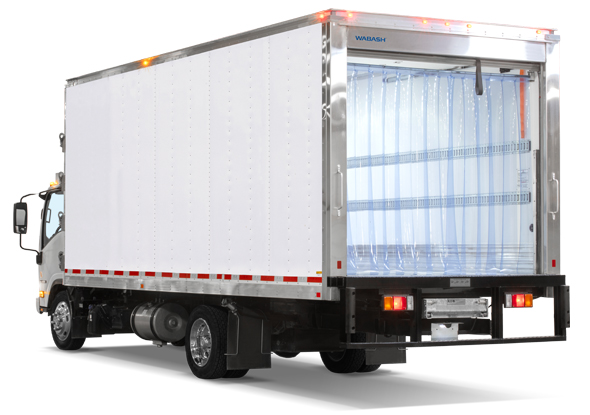Reefer Trucks Thermo King: Blazing A Trail in Cold Chain Technology
Wiki Article
Leading Advancements in Transportation Refrigeration: Enhancing Efficiency and Safety
The landscape of transport refrigeration is undertaking substantial change, driven by developments intended at boosting both efficiency and safety and security. As these technologies continue to evolve, it is vital to explore their implications on functional techniques and regulative compliance, triggering a more detailed exam of just how they improve the future of transport refrigeration.Smart Temperature Level Checking Solutions
In the world of transportation refrigeration, clever temperature tracking systems have actually arised as a critical development for making sure the honesty of temperature-sensitive products. These sophisticated systems leverage Net of Things (IoT) technology to offer real-time data on temperature level variations, making it possible for operators to preserve ideal conditions throughout the supply chain. By constantly tracking the temperature level of chilled containers and automobiles, companies can swiftly identify deviations that may endanger product top quality.
Furthermore, clever monitoring systems commonly integrate automated signals and alerts, permitting stakeholders to react quickly to any possible concerns. This proactive technique not only lessens the threat of putridity however likewise boosts conformity with regulative standards regulating food security and pharmaceutical transportation.
The integration of data analytics within these systems likewise facilitates predictive maintenance, helping drivers to foresee prospective tools failures before they occur. This capacity lowers downtime and maximizes operational efficiency, inevitably causing cost financial savings.
Eco-Friendly Refrigerants
Smart temperature tracking systems play an important function in preserving product high quality, yet the effectiveness of transport refrigeration additionally pivots on the option of refrigerants made use of. As ecological problems increase, the change in the direction of environment-friendly refrigerants has actually come to be necessary. Typical refrigerants, such as hydrofluorocarbons (HFCs), are well-known for their high Worldwide Warming Possible (GWP), contributing significantly to environment adjustment. In contrast, arising options like hydrocarbon-based refrigerants and hydrofluoroolefins (HFOs) present lower GWP options, supplying both efficiency and sustainability.
These environment-friendly cooling agents not just decrease ecological effect however also line up with global laws intended at eliminating hazardous compounds. Their adoption can cause enhanced energy effectiveness, eventually reducing operating expense for transport refrigeration systems. The usage of all-natural cooling agents, such as ammonia and carbon dioxide, has obtained traction due to their superb thermodynamic homes and reduced environmental footprint.
Investing in environment-friendly refrigerants is not just a regulative compliance step; it stands for a calculated decision that enhances brand credibility and promotes client commitment. reefer trucks thermo king. By prioritizing sustainable techniques, companies can add to a greener future while making sure the stability of transferred products
Advanced Insulation Products
Making use of sophisticated insulation products is vital for optimizing transport refrigeration systems, as they substantially enhance energy performance and preserve constant temperature level control. Typical insulation techniques usually drop short in preventing thermal transfer, bring about raised energy intake and fluctuating temperature levels within chilled areas.Emerging products such as vacuum shielded panels (VIPs) and aerogels use exceptional thermal resistance, enabling for thinner accounts without endangering efficiency. VIPs, for example, utilize a vacuum cleaner layer to lessen conductive and convective warmth transfer, making them perfect for space-constrained applications. Aerogels, known for their porous and light-weight structure, give outstanding insulation while dramatically reducing general system weight.
Additionally, including stage change materials (PCMs) right into insulation systems can better a knockout post support temperature levels during transportation. These materials absorb and release thermal energy, efficiently buffering versus exterior temperature variations.
The assimilation of these sophisticated insulation products not only decreases the functional expenses related to energy intake yet likewise expands the service life of temperature-sensitive products. As the transport refrigeration sector proceeds to evolve, the adoption of ingenious insulation modern technologies will be critical in enhancing both efficiency and safety in cooled transport.
Automated Path Optimization
The performance of transport refrigeration systems is substantially boosted via automated route optimization, which leverages real-time data and advanced algorithms to identify one of the most efficient paths for distribution. By analyzing various elements such as website traffic patterns, climate condition, and shipment windows, these systems can considerably reduce traveling time and gas intake.Automated route optimization reduces human mistake and subjective decision-making, which can bring about inadequacies. This innovation enables fleet managers to assign sources better, making sure that cooled goods preserve their required temperature throughout the trip. By enhancing routes, firms can also enhance client satisfaction via timely distributions.
In addition, automated systems can adapt to unanticipated circumstances, such as road closures or unexpected website traffic spikes, enabling vibrant rerouting. This versatility not just protects the stability of temperature-sensitive products however likewise adds to total functional efficiency.
Implementing automated route optimization can cause considerable expense financial savings while lowering the carbon impact connected with transportation. As organizations progressively focus on sustainability, this innovation stands apart as a critical part in contemporary transport refrigeration, aligning functional goals with ecological responsibility. Eventually, automated route optimization stands for a substantial improvement in the mission for efficiency and safety and security in transportation best site refrigeration.

Real-Time Data Analytics
Automated route optimization significantly gain from the integration of real-time information analytics, which offers essential insights right into the efficiency of transportation refrigeration systems. By using real-time information, transportation operators can keep an eye on temperature level variations and tools performance, guaranteeing that perishable goods are maintained within required criteria throughout transportation. This aggressive strategy not only enhances the high quality of the delivered products but also minimizes the threat of wasting and loss.
In addition to improving effectiveness, real-time analytics enhances safety by making certain compliance with governing criteria for temperature level control. This not only protects public health and wellness but also fortifies a firm's credibility - reefer trucks thermo king. As the transport refrigeration sector progresses, the integration of real-time data analytics becomes a cornerstone for driving innovation, sustainability, and functional quality
Conclusion
In verdict, the innovations in transport refrigeration significantly improve both effectiveness and safety and security within the market. Collectively, these developments stand for a crucial advancement in transportation refrigeration, ensuring compliance with regulatory requirements and advertising a greener future.The landscape of transport refrigeration is undertaking considerable change, driven by innovations intended at enhancing both effectiveness and security.Smart temperature level tracking systems play an important function in maintaining item high quality, but the effectiveness of transportation refrigeration also pivots on the choice of cooling agents used. Their fostering can lead to enhanced power efficiency, inevitably lowering operating prices for transport refrigeration systems. Ultimately, automated course optimization represents a significant improvement in the mission for efficiency and security in transport refrigeration.
In verdict, the innovations in transportation refrigeration significantly improve both performance and safety and security within the market.
Report this wiki page